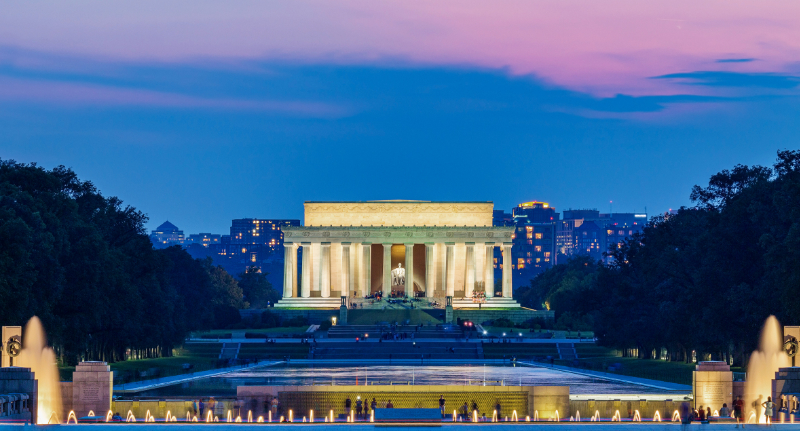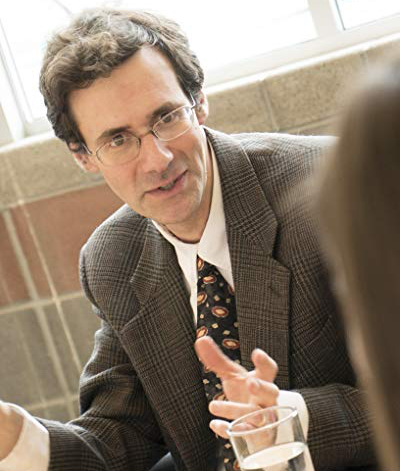
Much support for government deregulation originates from left-wing thought.
It is not difficult to identify the significant milestones in the history of deregulation in the United States.
The late 1970s and early 1980s saw federal legislation deregulating vast swaths of the transportation sector—airlines, railroads, and trucking. During the same period, similar legislation took the initial steps toward deregulating the financial services industry.
In the 1990s, Congress further deregulated financial services, relaxed regulation in the telecommunications industry, and passed legislation that laid the foundation for deregulation in the energy sector. The deregulatory policies embodied in these pieces of legislation were supported by—and often initiated by—presidents of both parties, and each was passed by large, bipartisan majorities in Congress.
Victory, of course, has many parents, and scholars of deregulation have identified a myriad of factors that led to this burst of deregulatory activity.
At the head of this list are a group of entrepreneurial politicians and policymakers: Senator Edward M. Kennedy (D-Mass.), who led Congress’ first foray into deregulation, holding hearings in 1974 and 1975 on airline regulation that exposed malign connections between the Civil Aeronautics Board and the airline industry; Kennedy’s advisor, then-Harvard Law School professor and current U.S. Supreme Court Justice Stephen Breyer, whose technical expertise informed the substance of these hearings; and the economist Alfred Kahn whose academic work and real-world implementation of deregulatory policies at both the New York Public Service Commission and, later, at the Civil Aeronautics Board seemed to demonstrate the real-world benefits of deregulation.
These policy entrepreneurs, the conventional argument goes, sat in a political context that was particularly sympathetic to deregulation.
The leading domestic political issue of the 1970s was the problem of double-digit inflation, and politicians of both parties were happy to support a policy that claimed to reduce consumer prices. Indeed, framed in this way, deregulation also had the potential to appeal to the emergent consumers’ movement.
Similarly, deregulation played into broader trends in the partisan politics of the 1970s: the growth of the Republican Party’s increasingly government-phobic conservative wing, typified by the increasing popularity of President Ronald Reagan, and the Democratic Party’s own move towards the center, particularly on issues related to economic policy.
Yet all these explanations beg a fundamental point.
Scholars of deregulation—such as Martha Derthick, Paul Quirk, and Anthony E. Brown—have recognized that there was a shift in American political culture in the 1970s that was of fundamental importance to the success of the widespread deregulatory policymaking that began at the end of the decade. As Derthick and Quirk have suggested, there was “a growing deregulatory mood” and a need for politicians to respond to “widely shared desires, sentiments and values” that reflected a “widely diffused disaffection with…government” and a “deep cynicism about government institutions.”
Although many scholars have linked the growth of this libertarian, anti-bureaucratic ideology to the rise of the conservative movement in the 1970s and 1980s, it was a different wellspring of anti-statist thought that became the foundation for the deregulatory preferences that transcended conventional political boundaries.
A closer look at American political culture in the 1970s reveals that the widespread antipathy towards the state can be most easily traced to ideas closely connected to the New Left, the Counterculture, and other left-wing subcultures that dominated high and low thought in the 1960s. Indeed, within this thought were explicit calls for deregulation.
There is no doubt that marginalist economics and public choice theory were blossoming in the 1960s and 1970s, but most Americans were not picking up their anti-bureaucratic sentiments from these theories.
Instead, deregulatory sentiments were popularized by best-selling authors like Vance Packard, Ralph Nader, and Charles A. Reich. These authors interpreted the work of academic thinkers such as Gabriel Kolko, Theodore J. Lowi, and C. Wright Mills, each quite popular in their own right. These thinkers, in turn, drew on the extreme hostility towards bureaucratic actors harbored by the left-wing thought of Frankfurt School neo-Marxists—including Theodor W. Adorno and Herbert Marcuse, for example.
Thus, although both the left and the right might have promulgated the idea of agency capture around the same time, it was the left’s hostility towards the state that permeated the popular culture. Indeed, the appeal of the left-wing variants of anti-bureaucratic thought should not be surprising considering that the most obvious causes of government mistrust in the 1960s and 1970s had political valences that resonated with the left more than the right.
The Vietnam War, the draft, and Watergate led this list, of course. But there were many other examples: police harassment and infiltration of civil rights and antiwar organizations; university suppression of free speech; and the enthusiastic enforcement of laws that appeared to be aimed at eliminating the emergent youth culture, such as drug laws, obscenity laws, vagrancy laws, and laws declaring popular styles of dress indecent.
This left-wing hostility towards the state led to explicit calls for deregulation.
Ralph Nader and Charles Reich were clearest in these demands. Nader and his colleagues at the Center for the Study of Responsive Law consistently appeared as witnesses during congressional hearings on deregulation. Reich was more catholic in his suggestions for dismantling what he called the “inhuman structure” of the New Deal state. At the center of his bestselling The Greening of America (20 weeks on top of the New York Times bestseller list in 1970) was a plea for a form of government that replaced hierarchical, technocratic bureaucracies with decentralized, egalitarian, participatory communities.
Indeed, at the center of much left-wing thought was the idea that the primary problem of society was the government’s compulsion to tell people what to do. Thus, reaffirming a popular Daoist maxim, the Counterculture’s first chronicler, Theodore Roszak, said: “The wise man, when he must govern, knows how to do nothing.”
The story of the left-leaning intellectual origins of deregulation is not simply an exercise in intellectual or cultural history. Instead, the link between this source of anti-bureaucratic thought and the politics of deregulation suggests why many deregulatory policies had such broad purchase in the politics of the late 20th century.
This link also suggests why other market-based modes of regulation that evidence a distrust of large bureaucratic entities—“New Governance” and “Reinventing Government”—have emerged, for the most part, from the Democratic Party. Although the Democratic Party may have moved to the right, hostility towards the state had embedded itself in the party—and the public at large—before that move occurred.
This essay is part of a five-part series, entitled Deregulation Then and Now.




